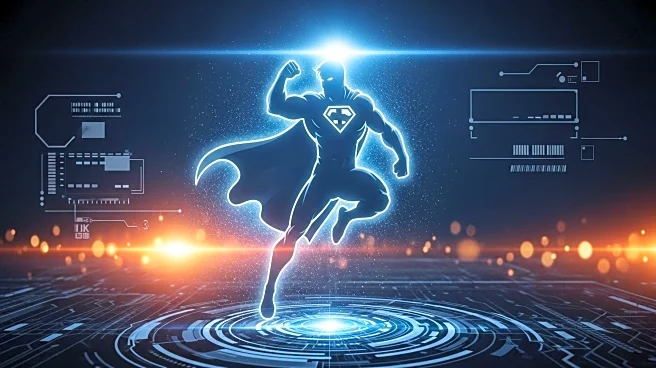What's Happening?
Los Angeles Comic Con is set to feature an AI hologram of Stan Lee, the legendary Marvel Comics creator, as part of the Stan Lee Experience. Created by Proto Hologram and HyperReal, the hologram allows fans to interact with a digital representation of Lee, including taking selfies and having brief conversations. The initiative aims to preserve Lee's legacy and offer fans a chance to engage with his persona, despite concerns about the ethical implications of using AI to recreate deceased individuals. The hologram is designed to reflect Lee's lifetime views and maintain the spirit of his interactions with fans.
Why It's Important?
The use of AI to recreate Stan Lee raises ethical questions about the representation of deceased individuals and the commercialization of their likeness. While the hologram offers fans a unique experience, it also highlights the growing intersection of technology and entertainment, where AI can extend the legacy of cultural icons. The initiative reflects broader trends in the entertainment industry, where digital technology is increasingly used to create immersive experiences. However, it also prompts discussions about consent and the potential exploitation of a person's image after their death.
What's Next?
As the hologram debuts at LA Comic Con, organizers and creators may face scrutiny from fans and critics regarding the ethical use of AI in entertainment. Feedback from attendees could influence future developments in hologram technology and its application in preserving legacies. The event may also spark broader conversations about the role of AI in the entertainment industry and the boundaries of digital representation. As technology advances, similar initiatives could become more common, prompting ongoing debates about the balance between innovation and ethical considerations.
Beyond the Headlines
The introduction of the Stan Lee hologram reflects a shift in how cultural legacies are preserved and experienced, raising questions about the authenticity of digital representations. The initiative challenges traditional notions of celebrity and legacy, as AI technology blurs the lines between reality and virtual experiences. The ethical implications of using AI to recreate deceased individuals highlight the need for clear guidelines and discussions about consent and representation in the digital age.










